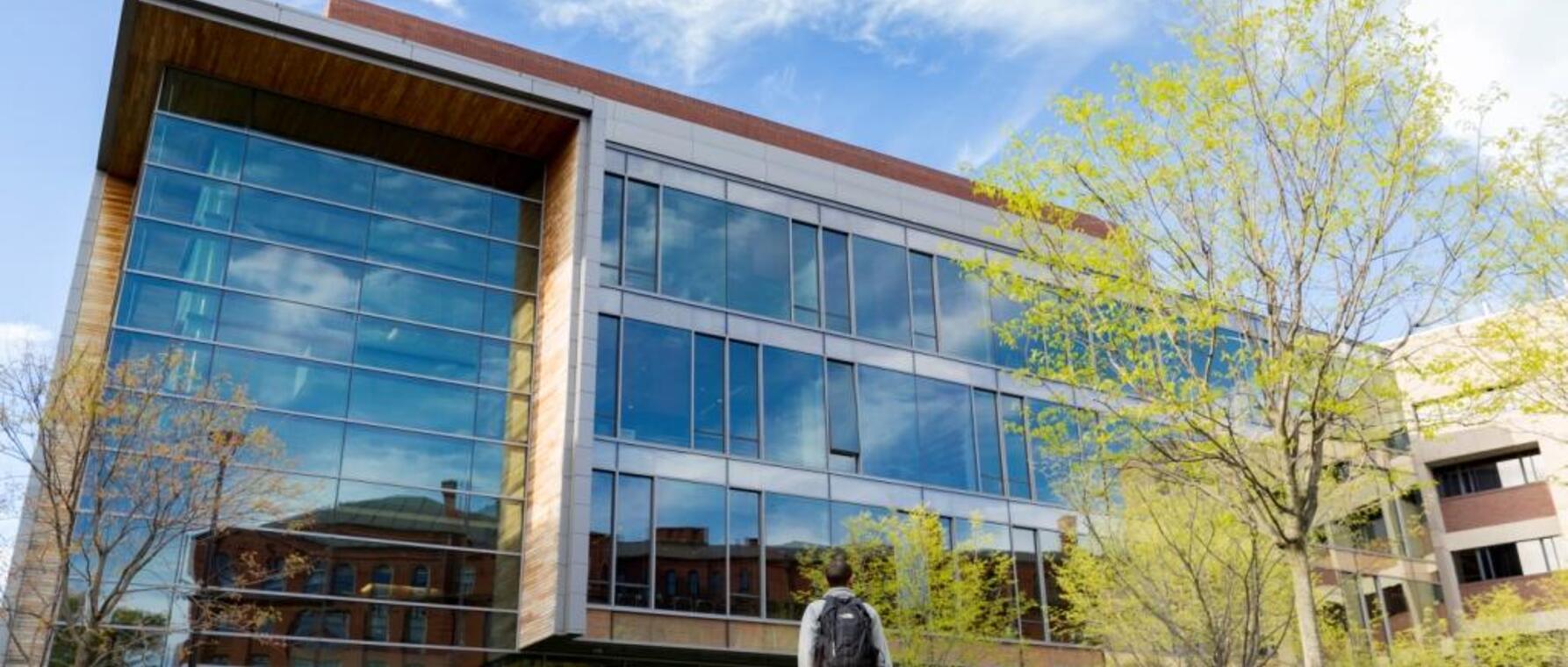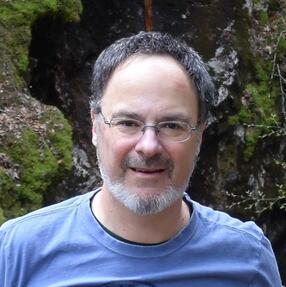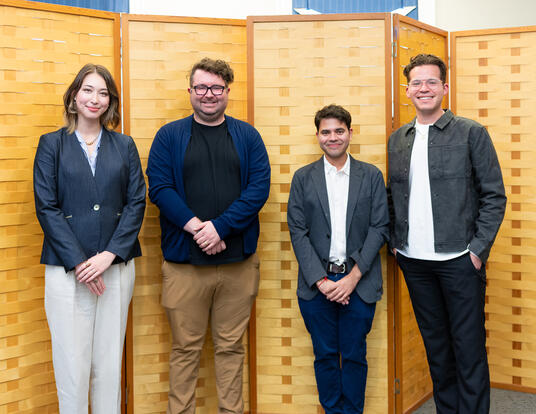A Conversation with SEAS’s John Girash


In his role as director of graduate education for the Harvard John A. Paulson School of Engineering and Applied Sciences, John Girash works with faculty and administrators to support the needs of the more than 500 SEAS PhD students in Allston and Cambridge. Along with Graduate Academic Programs Administrator Mary Kathryn Juskiewicz, Girash serves as an important resource for students looking to talk through an issue or concern related to any aspect of their program. He recently spoke with The Advising Project on topics relevant to graduate students in all disciplines: about student-faculty advising relationships, work/life balance, and how being at Harvard can sometimes feel a lot like scrolling through social media.
One thing we hear frequently from students is, “My advisor emails me a lot on the weekends. Does that mean I’m supposed to be working then?” What would you say to these students?
Faculty often say they also struggle with work/life balance! Work/life balance matters, and emotional and whole-life balance matters. At the same time, academia is not a 9-to-5 job, so finding alignment with your advisor is important. Most groups [at SEAS] aren’t keeping strict track of time off, and there can be a wide spectrum of approaches. So work with your advisor upfront to see how it will go. If it’s a bigger problem, talk to someone—SEAS students can speak with me or Mary Kathryn. It’s all about alignment.
What tips do you have for students who are considering changing advisors?
First, know that it’s a perfectly normal thing to do. Students don’t have to feel embarrassed about it, and they don’t need to justify to their potential new advisor why they’re approaching them. That said, it is a huge step [especially for lab-based programs]. I will typically ask students if there are things that might be fixable that are worth trying to change first. That way, they won’t have to start from scratch in a new lab group. Students need to consider at what point they choose to leave: do you keep up with your obligations in your first group even while you’re looking elsewhere, or is it better for your mental health to leave before you have something lined up?
The experience of leaving might be like the break-up of a relationship, and it can be somewhat emotional for both the student and the advisor. But finding a new PI is more like a job search. The faculty member who first recruited you put a lot of time and effort into recruiting students and was looking for a student’s help with something specific in their lab group—and so will any potential new advisor. So knowing what you will bring to your new group is an important consideration: you’re going to have to similarly convince a new faculty member why they might want to bring you on board. The advisor search often becomes a “campaign” that leverages relationships, and students need to be emotionally ready for that sort of (possibly fairly long) campaign. It’s not a single-step process, and it requires networking. I often work with SEAS students throughout the process so that, for example, if they have been in contact with a potential new advisor and then communication falls apart, we can consider together how and why that may have happened.
Another thing I’ll ask students considering changing advisors is, how is your emotional support network? Do you have friends or roommates you can talk to? SEAS has a peer support group called In Touch that is a great resource, advised by Finale Doshi-Velez.
If a student has concerns about their future in the program overall, what do you suggest?
For students thinking of leaving the program, we talk about if they’re thinking of leaving because they don’t want to be here anymore, and maybe that’s something we can change, or if they are actively going to a new opportunity. At SEAS we have this mindset of being “future path agnostic.” We want to support whatever path students choose, as long as they’re doing what will make them happy.
Grad students at any stage are so often faced with imposter phenomenon. How do you recommend students deal with this issue and the feeling that they’re the only ones struggling?
We have a “How to be a grad student” course in computer science, and one of the things we do is bring in older G-year students to talk to the G1s. It’s a big thing to get their perspective [on imposter phenomenon] after being in the program for a few years. We lean hard on the idea that it’s not a syndrome—it’s a phenomenon experienced by most students. Harvard has always been what social media is now: people here tend to not show the ways in which they’re “lacking,” or “weak,” or what have you. A student might see postdocs or older G-years who are publishing and finding results, but the student is not seeing their internal lives, either now or when they were in the student’s shoes. They may still be going through similar struggles and insecurities. It’s not until you get to know people, that is, and then they will often open up about challenges they’ve faced.
What are some ways students and faculty can strengthen their advising relationships overall?
Social events for lab groups help with community-building away from work. How everyone treats each other during the workday is important, too—it’s crucial to foster a culture where people help each other. Students and advisors should have regular one-on-one meetings as well as full group meetings. Working on a PhD can induce cognitive conflict, in that in the sciences, all work is collaborative but the PhD is traditionally viewed as about an individual’s work. People have to help each other and have to share and give credit. Students can be anxious about authorship, and advisors can get caught in the middle. What’s more important is that everyone gets acknowledged, less so what order the names are in.
My advice to students: Establish that if you have frequent meetings with your advisor, it’s okay to cancel a meeting or not have a lot of work done each and every meeting. Just try to avoid canceling twice in a row, as this can lead to an anxiety loop about not having enough progress to present in the next meeting (which the student may then be tempted to also cancel). Don’t be shy about asking your advisor for help if you're mentally blocked or haven’t made much progress.
My advice to advisors: Don’t yell at your students!
Whoa, what?!
Yes, I know! I’m sorry to say this is still an issue with a small number of advisors. Even if it’s about academic problems, it does a lot of damage and sets up students to be motivated out of fear, not out of a desire to contribute. This might be the way that some faculty were “raised,” but for current graduate students, it does not work and is not helpful.
We want students to be happy and fulfilled while doing the PhD, and not just when they receive their degree. If your fulfillment is happening only outside the PhD, something might need to change, whether that’s considering a new advisor or something else. I think it was [SEAS Professor] Barbara Grosz who said that a PhD should be stressful, but a productive stress, leading somewhere good. If it’s a bad stress, act on it, and work to find a solution. Your program and GSAS have people who can help you with that.
SEAS students are always welcome to reach out to John Girash with any questions or concerns: jgirash@seas.harvard.edu. All GSAS students can head to the Office of Student Services in Lehman Hall with questions or concerns, or email stuserv@fas.harvard.edu.
Get the Latest Updates
Join Our Newsletter
Subscribe to Colloquy Podcast
Simplecast





